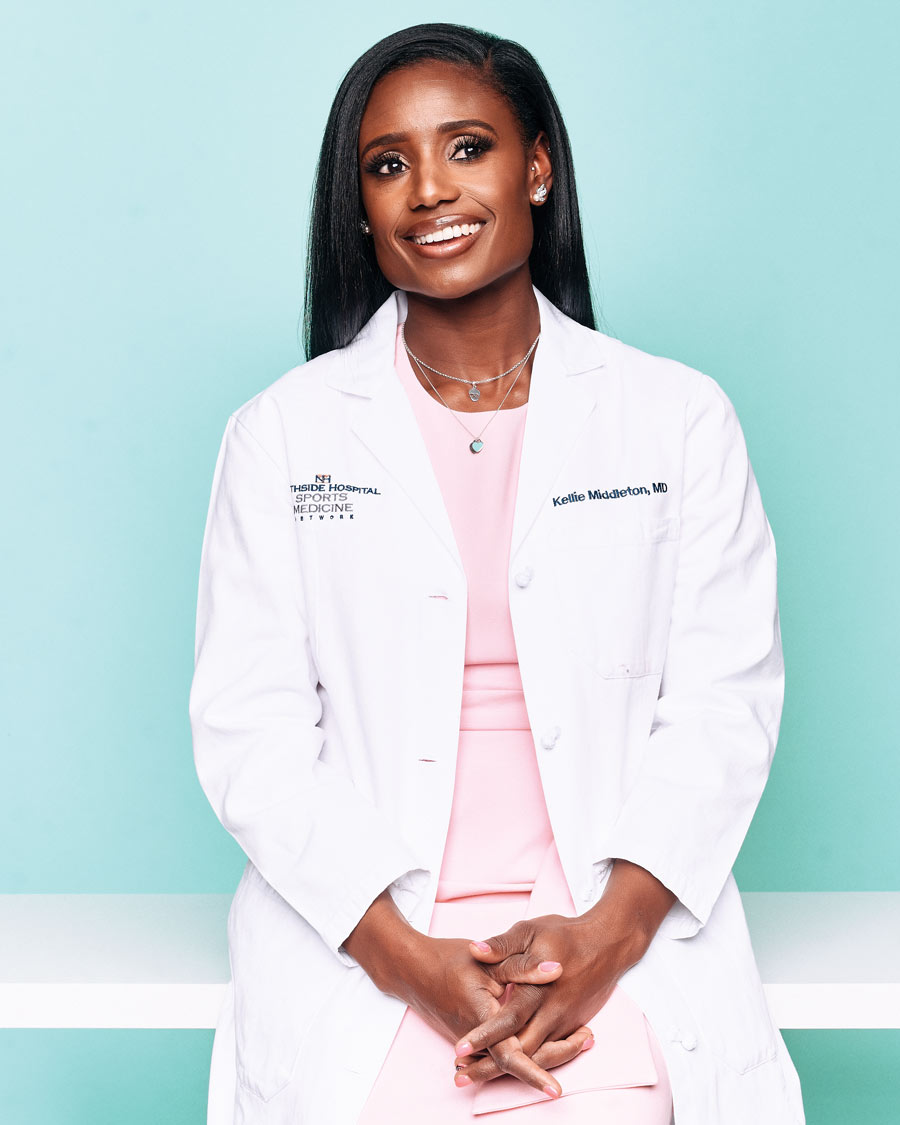
Photograph by Ben Rollins
You’re a practicing physician with both an MD and a master’s in public health. How do those two fields relate?
As an MD, my objective is to take care of each patient individually and cater to their needs. With my MPH, however, I see the community as my patient. Medical decisions impact entire communities. Having my MPH is a marriage between the micro and macro of public health.
How did you provide patient care during the pandemic?
We provided a lot of care remotely via telemedicine, but that meant the patient had to have the technical capability to do so. Despite the benefits, there are barriers to providing telemedicine services. For instance, not all patients speak English. During the pandemic, I could at least communicate with patients and was able to perform basic examination techniques remotely. I was also able to order prescriptions not only for medications but also for home health including nursing and physical therapy. Telemedicine extends our reach as physicians, and it is our responsibility as healthcare providers to provide equal opportunities and access to all individuals.
You’re an orthopedic surgeon, so did you have to deal with Covid?
Yes, we were all impacted by Covid-19 in different ways, though I was not on the front line in the emergency department or on inpatient wards as many nurses, technicians, doctors, and administrative staff were. Many of my patients made decisions not to come in for sports-related injuries because of the risks of getting Covid-19; however, some patients did not have a choice. For instance, no one could predict a fall or a motor-vehicle accident. I was always ready and available to provide my services whenever I could. Additionally, I worked alongside other healthcare providers to help educate patient populations about the pandemic and how to ensure safe daily practices. It’s not just a doctor; it’s not just a nurse; it’s not just a social worker. It takes an entire community to help our patients.
This article appears in the July 2021 issue.













